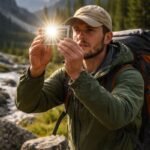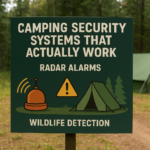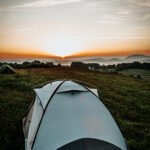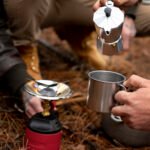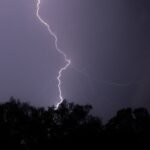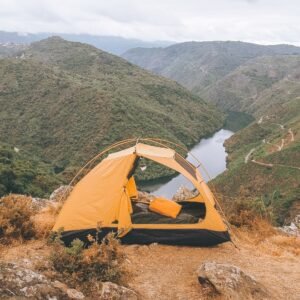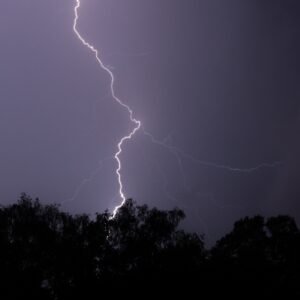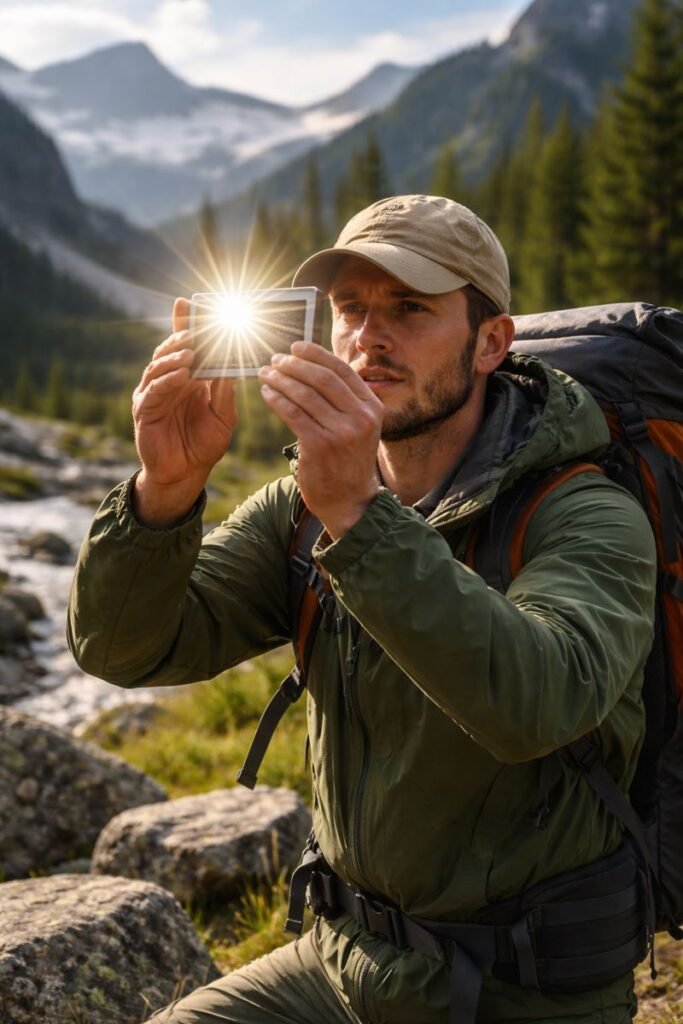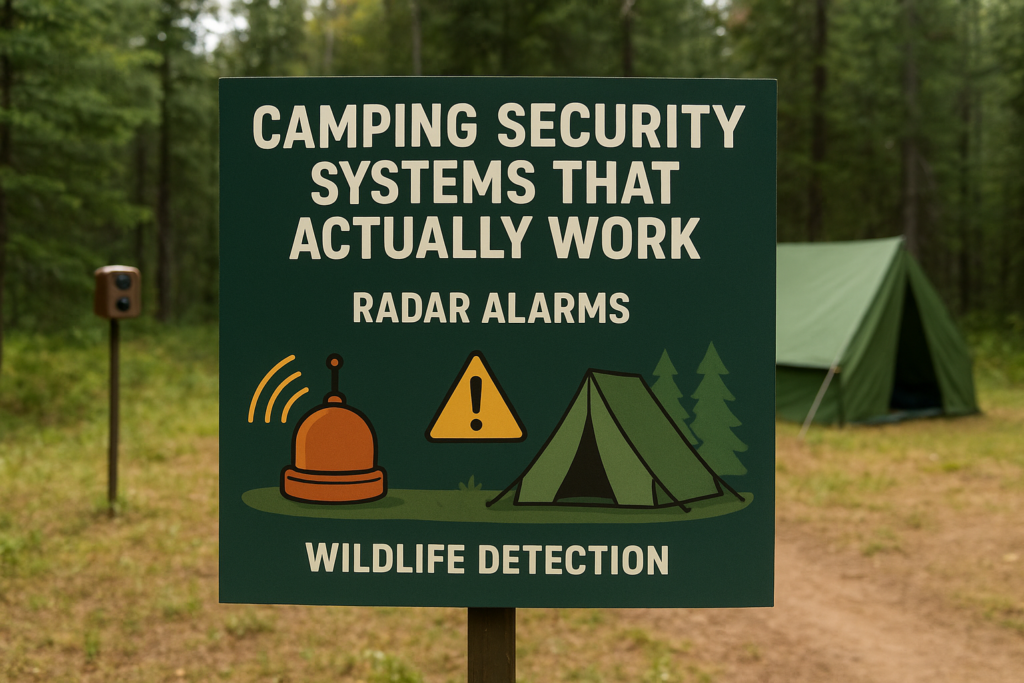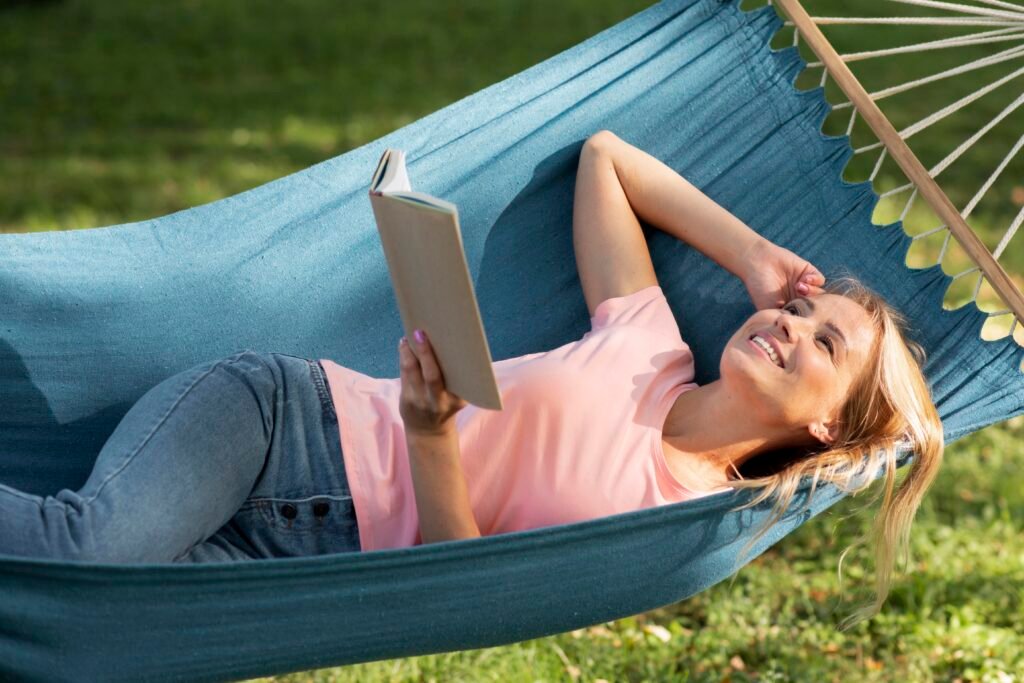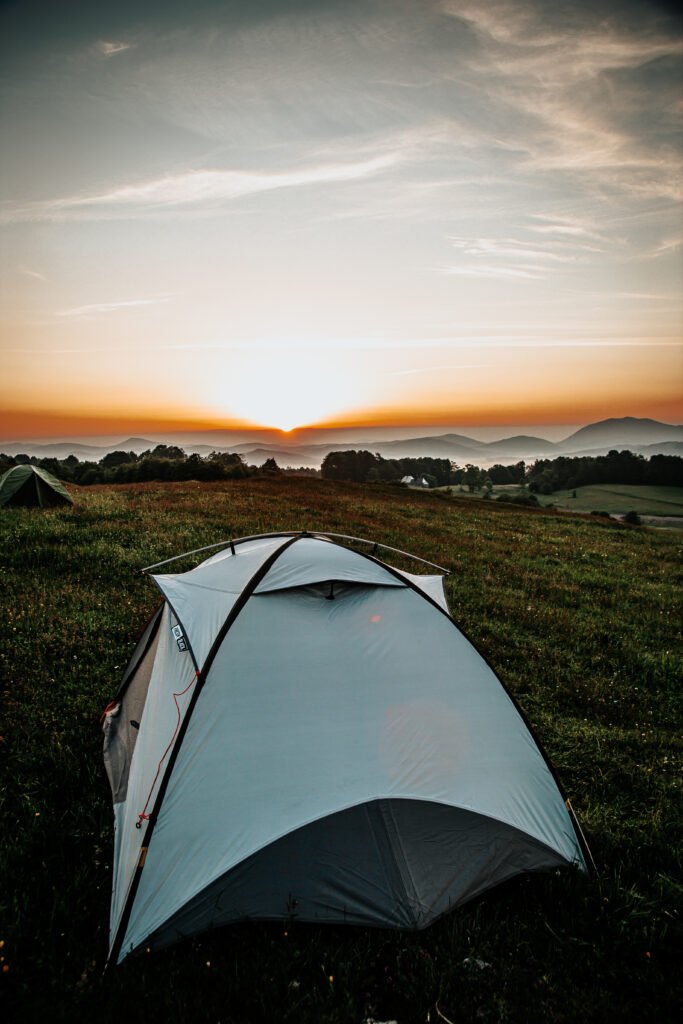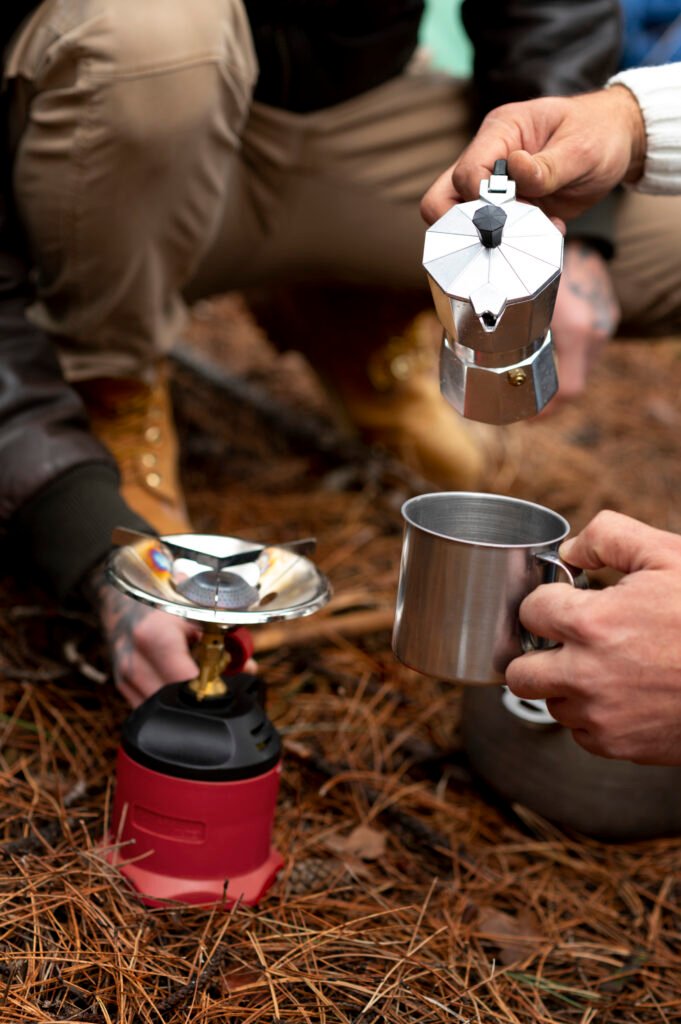Tenting and Camping – Surging in popularity post pandemic
The great outdoors isn’t just calling; it’s waving at you, shouting, and welcoming you! After months(okay, years) of being cooped up and locked inside our houses during the pandemic, binge-watching Netflix, and trying the most viral recipes, something unexpected happened. When we looked out of our windows, we realized that nature never went anywhere, but we just forgot to revisit.
Since the pandemic, outdoor recreation has seen a remarkable surge in popularity. People aren’t just seeking getaways—they’re chasing experiences with purpose. Camping and tent travel, in particular, have emerged as front-runners in this movement toward more meaningful escapes. A great majority of people are trading expensive getaways with tents and stakes, making camping and tenting the go-to travel experience.
What’s behind the explosion of interest in camping and tent travel, and why are people yearning for nature-based getaways?
The answer lies in a collective shift toward simplicity, connection, and renewal. After the confinement of the pandemic, the open skies and earthy silence of nature have become more than just a retreat—they’ve become a remedy. Camping offers people the freedom to unplug, the chance to reclaim peace, and the joy of rediscovering life outside the screen.
How did the pandemic create outdoor enthusiasts?
Nature’s gentle invitation – Why camping became a healing ritual?
As the world reeled from lockdowns and restricted travel, our concept of leisure underwent a transformation. The pandemic pushed us indoors, away from the people and places we loved. But in that pause, many rediscovered something they hadn’t felt in years—stillness. And nature, in its quiet way, became a sanctuary. Camping wasn’t just a way to “get away”; it became a way to come back and feel the simplicity and resonate with nature.
With travel restrictions in place, the outdoors offered an open-air alternative that felt safe yet liberating. Tent camping especially gave people the space to breathe—literally and figuratively. There’s something deeply comforting about waking up to birdsong, brewing coffee by a fire, and watching the stars reclaim the night sky.
Camping Benefits: More Than Just Fun in the Great Outdoors
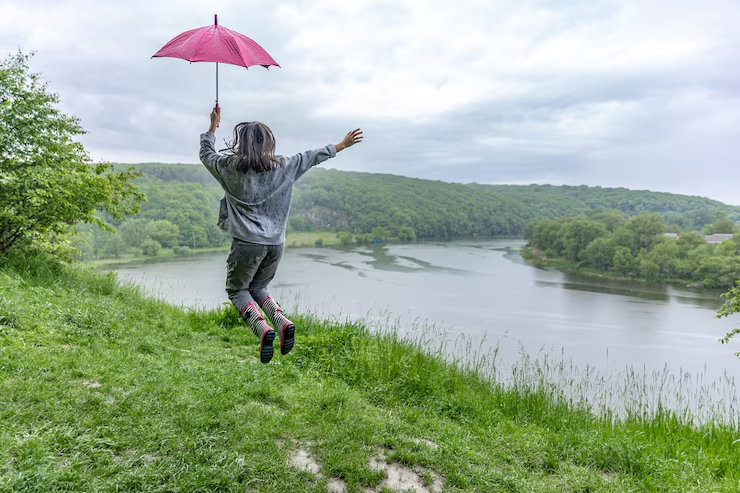
Studies have consistently shown that the benefits of camping extend far beyond simply having fun. Immersing yourself in outdoor activities offers powerful mental health rewards—think reduced stress, improved mood, and better sleep quality. The Japanese practice of forest bathing, which involves spending time in nature mindfully, now has solid scientific support for its therapeutic effects.
Family Camping: Where Memories and Mindfulness Meet
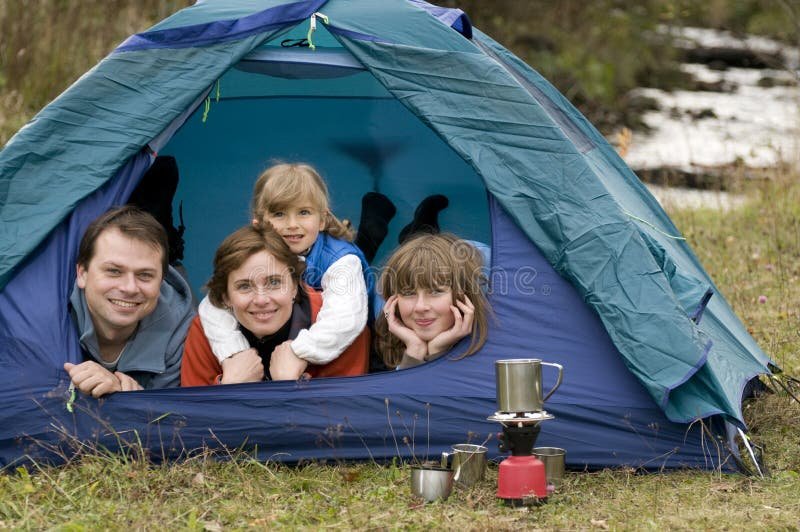
As families searched for safe ways to create meaningful moments, camping emerged as a favorite. Camping with kids isn’t just an adventure—it’s an opportunity to unplug from digital noise, strengthen family bonds, and nurture essential life skills while cultivating a lifelong love for nature.
Camping – Always been a budget-friendly travel choice
The affordability of camping has played a huge role in its recent popularity among travelers seeking memorable getaways. With rising hotel prices and the hassles of international trips, camping gives families and outdoor enthusiasts a more budget-friendly option without sacrificing adventure.
State parks and local campgrounds have seen a boom, thanks to their scenic settings and low fees. Car camping—driving right up to your site—has brought the camping experience within easy reach for newcomers, making the outdoors feel more inviting than ever.
The Rise of Glamping and Luxury camping
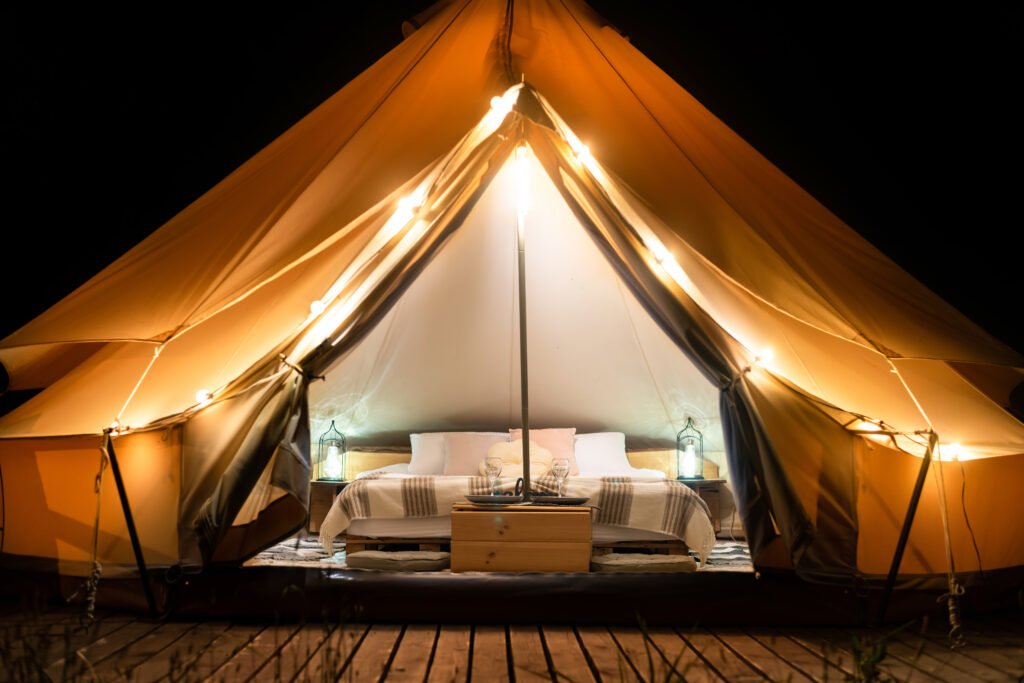
While some adventurers were happy to pitch a tent in the wilderness, many craved a more comfortable alternative—fueling the rapid rise of glamping (glamorous camping) as a popular middle ground.
For many, the idea of sleeping on the hard ground, braving unpredictable weather, or forgoing basic hygiene amenities made traditional camping a non-starter. Glamping emerged as a middle ground—offering the immersive experience of the outdoors without sacrificing modern comforts.
Luxury camping experiences bridge the gap between traditional tent camping and hotel comfort, attracting those who love nature but prefer their bathrooms indoors and their beds off the ground. These setups often include plush bedding, climate control, gourmet meals, and even Wi-Fi—elements that transform a rustic retreat into a comfortable and luxury getaway.
Glamping caters not only to comfort, but also to a growing audience seeking sustainable, experience-driven travel. It allows people to disconnect from the Digital world and connect with nature most wonderfully!
Technology Meets Tradition: Modern Camping Innovations
Gear Revolution for the Digital Generation
Camping is no longer just about tents and sleeping bags—it’s about innovation meeting the great outdoors. The camping gear industry has undergone a revolution, driven by the needs of a tech-savvy, adventure-seeking generation. Modern camping equipment now includes everything from solar-powered charging stations for off-grid energy to ultra-lightweight backpacking gear built for solo explorers and minimalist travelers.
Mobile technology is transforming the way we camp. Camping apps make it easier than ever to book camping reservations, discover scenic camping sites, and even identify local wildlife and native plants with just a tap on your screen. These tools bring convenience and confidence to every level of camper, from first-timers to veterans.
Camping Trends and Popular Destinations
National parks camping remains a top choice for outdoor enthusiasts, with iconic destinations like Yellowstone, Yosemite, and the Grand Canyon experiencing record-breaking visitor numbers. These legendary parks offer unforgettable scenery and wildlife encounters, making them especially popular for those seeking immersive nature escapes. State parks also have seen remarkable growth, often providing more convenient access, fewer crowds, and greater availability.
Each setting—whether it’s beach camping, mountain camping, or desert camping—offers a unique outdoor experience tailored to different preferences, from relaxing by the ocean to hiking rugged peaks or exploring arid landscapes.
#Camp Life and the Digital Documentation of Nature
It’s hard to scroll through Instagram these days without stumbling upon a dreamy campsite, a hammock strung between two pines, or a golden-hour shot of someone sipping coffee with a mountain view. Social media—especially platforms like Instagram, TikTok, and YouTube—has been a major driving force behind the surge in camping’s popularity. For many first-time campers, these digital glimpses into the wild have sparked real-life adventures.
Camping influencers and outdoor content creators do more than just post pretty pictures. They share gear recommendations, beginner-friendly locations, packing tips, and honest stories from the trail. Their content has made camping feel more accessible, especially for people who may have felt unsure about where to begin. A scroll through #CampLife isn’t just eye candy—but an invitation to embrace and conquer the wild!
Camping Culture and their Social Aspects
The experience of camping goes far beyond setting up a tent or hiking a trail—it’s about connection. The social aspects of camping culture have become a defining part of the outdoor lifestyle, as people seek community, shared experiences, and a sense of belonging in nature.
Camping communities have flourished not only at campgrounds but also in digital spaces. Online forums, social media groups, and blogs have become hubs where veteran campers generously share advice, reviews, and trail-tested wisdom with curious newcomers. This spirit of mentorship has helped create a warm and inclusive atmosphere around outdoor activities, making camping feel approachable to people of all backgrounds.
For those just starting out, camping clubs and organized group trips offer an easy entry point. These groups provide more than just logistics—they offer a supportive environment where people can learn proper camping skills, build lasting friendships, and grow their confidence in the outdoors.
Conclusion
The post-pandemic camping surge isn’t just a temporary thing, but has something deeper to say. After years of lockdown, screens, and isolation, we are all, pulled towards something real. We always yearned for the simplicity that nature provides, the fresh air, clear skies, the green trails and the chirping of the birds.
Whether you’re drawn to the quiet solitude of minimalist backpacking, the comfort and style of luxury glamping, or the timeless joy of traditional family camping, one thing is clear: the outdoors offers a space where everyone belongs. It’s not just about where you sleep—it’s about how you feel when you wake up to birdsong instead of an alarm, when your phone loses signal but your senses come alive.
The true benefits of camping go far beyond the gear and the campfire snacks. Studies (and personal experience) show that spending time in nature can boost mental health, reduce stress, and help families grow closer. Children learn independence, couples reconnect without distractions, and solo campers find clarity that’s hard to come by in everyday life.
